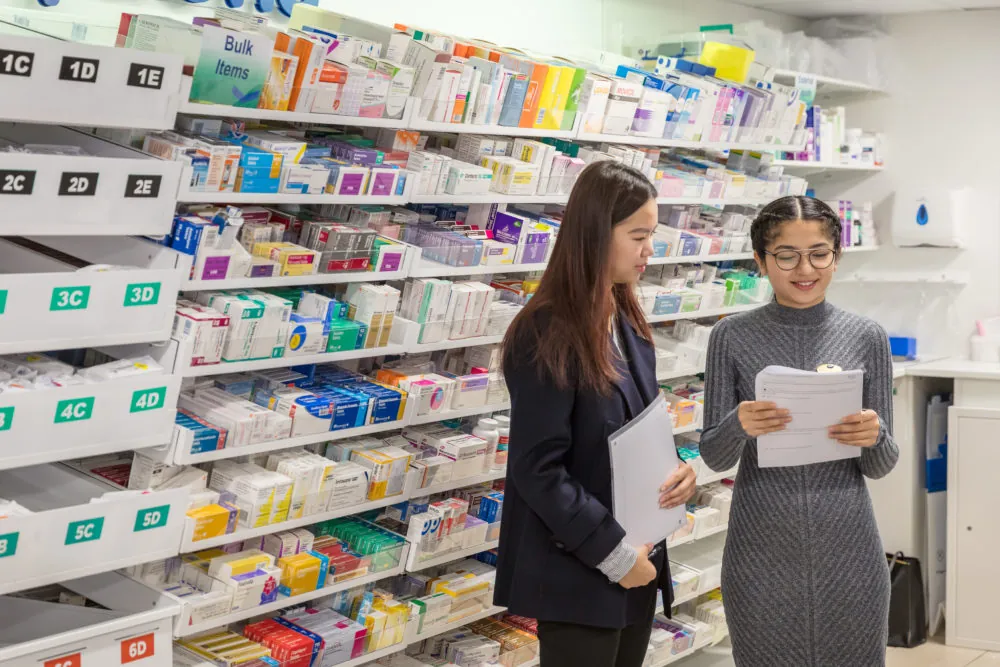
From brain surgery, childbirth and hip replacements, to collecting a prescription from a community pharmacy, as patients we expect every contact we have with the NHS to be safe.
Everyone makes mistakes but in certain professions the ramifications of these inadvertent errors can be more damaging. If a barista mistakenly mixes up an order for an espresso with an americano, this might just lead to a frustrated commuter. If the same kind of error occurs in a pharmacy dispensary, the consequences can be fatal.
I think it is far too easy for members of the public to take for granted just how safe our NHS is. When something does go wrong however, there are usually many contributing factors. To enable continuous improvements in patient safety, we must collaborate and co-create solutions. Simply put, there is no quick fix!
Community pharmacy is an integral part of the NHS. Every year, over a billion items are dispensed in community pharmacies in England alone. The process of dispensing medicines is incredibly safe. It’s more complex than people might imagine: much more goes on behind the counter than just sticking a label on a box. If not used as intended, medicines have the potential to be very harmful and even fatal. Therefore, preventing mistakes in pharmacy is critical.
Having been on the ‘other side’ of a community pharmacy dispensary a couple of times since joining the CCA last summer, I’ve seen the hive of activity that takes place in a relatively small space. Dispensaries can be noisy and busy environments which may exacerbate human factors often involved in patient safety incidents.
When something goes wrong there are many contributing variables, including the personal circumstances of the healthcare professionals involved. There is growing recognition of the importance of improving the design of work environments and processes to reduce the safety risks associated with human factors, but I think, a shift in culture can be just as impactful.
Healthcare professionals must be confident about sharing any inadvertent mistakes without fear of blame or punishment. It is well known that a just culture enables continual learning and improvement, to reduce the likelihood of the same or similar mistakes from occurring.
The Community Pharmacy Patient Safety Group (CP PSG), hosted by the CCA, brings together the Medication Safety Officers from 19 community pharmacy organisations. With the whole sector represented on the group, we put aside commercial interests and focus solely on sharing and learning from the patient safety experts sat around the table.
I have found the CP PSG meetings to be fascinating and an inspiring example of truly patient-centred working, where professionals from different businesses and organisations come together with the sole, collective aim of improving patient safety in community pharmacy.
To me, ‘safety culture’ means the level of openness and transparency in an organisation and the attitudes and confidence of team members about reporting and sharing when things go wrong. Today marks the final week of the CP PSG survey about patient safety culture in pharmacies. The survey is aimed at practising pharmacists, pharmacy technicians and their teams and collects valuable (anonymous) insight into their opinions on patient safety incident handling.
A similar survey was carried out by the group in 2015-16, which gives us the opportunity to compare the two datasets and perhaps identify if there has been any shift in the attitudes and behaviours of pharmacy teams about reporting patient safety incidents.
If you work in a pharmacy, we want to hear your honest opinions about some of the barriers you may feel affect your reporting when things go wrong (or nearly go wrong). You have until Friday 10 May to have your say. It will take less than 10 minutes to complete, and your feedback and reflections are invaluable for us to build a picture of the safety culture in community pharmacies across the sector, so we can work to drive continual improvements in patient safety.
Mary Gough
Policy & Communications Officer

